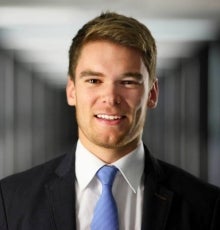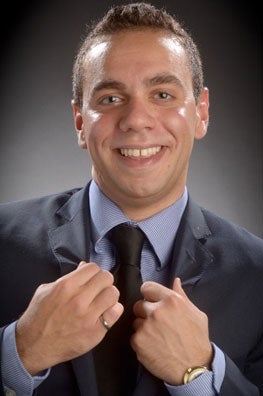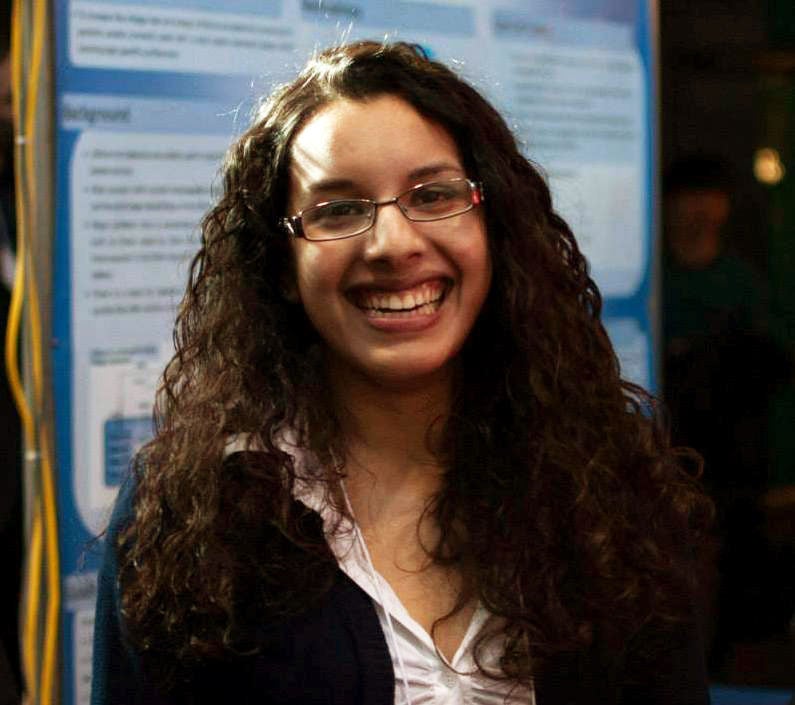Three entrepreneurs from Waterloo Engineering are members of the new class of The Next 36 (N36), a Canadian program that provides

Amin Ghafelehbashi, a fourth-year systems design engineering student, Michael Reid, a third-year management engineering student, and Farzana Yusufali, a 2014 nanotechnology engineering graduate, join 35 others, including two other University of Waterloo students.
Students applied to the program from 45 institutions across the country, and top U.S schools, including Harvard, Columbia and Yale. The University of Waterloo has the most students in the program of all the institutions.
Contributed to successful startups
The N36 entrepreneurs will spend the next seven months building their companies with up to $80,000 in seed money, the support of mentors, a unique academic program and a pool of business advisors. The program has contributed to the success of industry-changing startups including Thalmic Labs, founded by Waterloo mechatronics engineering graduates.
Reid and Ghafelehbashi have been part of the University of Waterloo’s Enterprise Co-op program run by the Conrad Business, Entrepreneurship and Technology Centre.
Reid, the cofounder of SparkGig an online marketplace that seamlessly

Waterloo Engineering provides students with a good framework for solving problems and learning new concepts quickly, says Reid. "These two skills are very helpful in entrepreneurship," he adds.
Ghafelehbashi said he wouldn't be part of N36 without "the amazing mentorship" and "world-class education" from Waterloo's systems design engineering staff and faculty members.

During the last five years, Ghafelehbashi has worked at five different companies in five different cities. During his last co-op term, he worked as an API Technical Writer at Google in New York City where he was recognized for going above and beyond expectations. He was offered a full-time position with Google but turned it down to pursue his dream of becoming an entrepreneur.
Yusufali is part of the Grayscale Coatings startup that is developing a reflective roof coating that will cool in warm months and heat in cool

Since graduating from nanotechnology engineering last spring, Yusufali attended OCAD to pursue her interests in visual arts and industrial design and is now working with her Capstone Design project team to bring Grayscale Coatings to marketplace.
The successful applicants for the N36 program competed in the National Selection Weekend that Reid describes as intense.
"On the Friday we had about six hours of back-to-back interviews," he says. "The most valuable takeaway for me was networking."
Yusufali says that besides the interviews with CEOs and the general pressure of the situation, meeting all of the finalists was inspiring and intimidating at the same time.
"The educational experience through the guest speakers, panel discussions, and meetings with our mentors was also very insightful in what starting a business would entail and what would be expected of us," she says.
About The Next 36
The Next 36 was established to address Canada's deficit of high impact entrepreneurship by providing resource-rich education programs to promising young entrepreneurs. It was founded by a small group of Canadian business leaders and academics including Galen Weston, Paul Desmarais, Sr. and Jimmy Pattison.